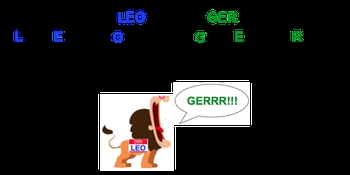Redox reactions, also known as oxidation-reduction reactions, involve the transference of an electron or electrons between reactants. And now a memory tool that'll help us remember what it means to be oxidized versus reduced is that LEO the lion goes GER. So LEO stands for "lose electrons oxidation" and GER stands for "gain electrons reduction." Let's go back and think about this. "Lose electrons oxidation." Electrons are negatively charged. If I'm losing something that's negative, then my life, me as a substance, becomes more positive. So, losing the negative to become more positive means you're becoming more positive as you lose negative electrons. But let's talk about this in terms of oxidation numbers. I'm becoming more positive, that means my oxidation number is increasing. Maybe I go from +2 to +4.
Now, if you're gaining negative things in your life, which we all don't want to happen, you're going to become more negative. So, you become more negative in charge. What does that mean in terms of oxidation number? Well, if you are becoming more negative, that means your number is decreasing. So, your oxidation number is going down. Maybe I go from +3 to -1. My oxidation number has decreased. So just remember, "LEO: lose electrons oxidation," I become more positive, my oxidation number goes up. "GER: gain electrons reduction," I become more negative, my oxidation number decreases. We're going to remember this when we take a look at redox reactions.


